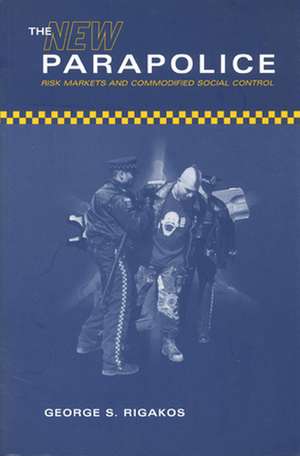New Parapolice
Autor George S. Rigakosen Limba Engleză Paperback – 15 feb 2002
Policing in a capitalist economy is run on both state and private levels. Much existing literature on private policing assumes that the private sector is oriented almost exclusively towards loss prevention, and does not fulfil a crime-control function. In this carefully researched study, George Rigakos considers the increasingly important role of the 'parapolice' in the maintenance of social order. He argues that for-profit policing companies adopt many of the tactics and functions of the public police, and are less distinguishable from the latter than has been previously assumed in the criminological literature.
Rigakos conducted a detailed ethnographic and statistical case study of Intelligarde International - a well-known Canadian security firm - and uses his results to investigate the following: How are discipline and surveillance achieved organizationally and commodified as 'product'? How do security agents themselves, and those they police, resist social control?
This work offers wide-ranging theoretical implications, drawing on Foucauldian concepts such as risk, surveillance, and governmentality, and on Marxian formulations of commodity and aesthetic production. The first criminological ethnography of a contract security firm in Canada, this book will be of interest to criminologists, sociologists, lawyers, and policy-makers and to any non-academic reader with an interest in the experience of those employed in the parapolice.
Preț: 368.47 lei
Nou
70.51€ • 76.57$ • 59.23£
Carte tipărită la comandă
Livrare economică 22 aprilie-06 mai
Specificații
ISBN-10: 0802084389
Pagini: 240
Dimensiuni: 152 x 233 x 14 mm
Greutate: 0.31 kg
Ediția:New.
Editura: University of Toronto Press (Scholarly Pub)















